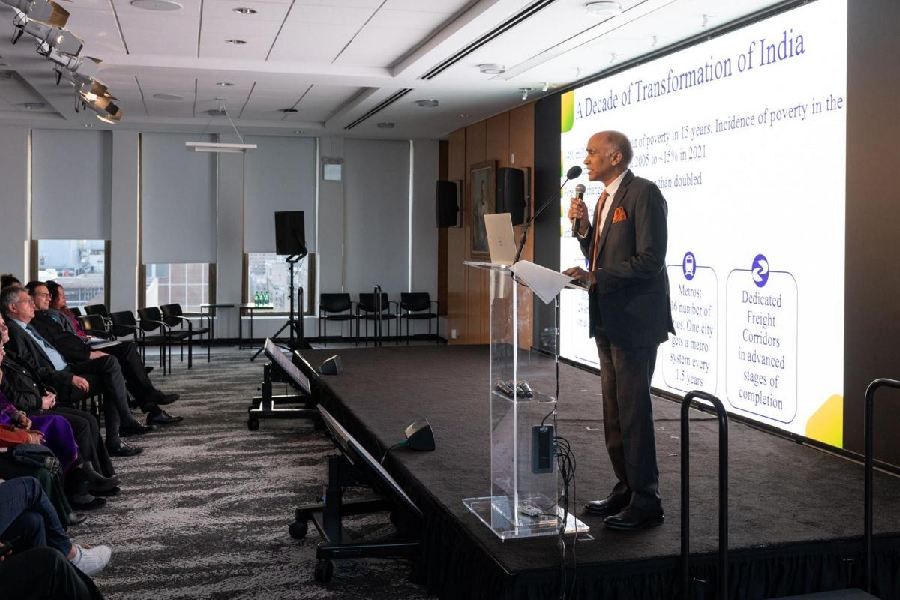The first issue in engaging with Pakistan is the cessation of terrorism, India’s envoy at the UN said, underlining that India has been a long-standing victim of cross-border and global terrorism and has zero tolerance towards the scourge.
“With Pakistan, the main issue we have is of terrorism,” India’s Permanent Representative to the UN Ambassador Parvathaneni Harish said during a conversation here on Tuesday.
Harish delivered the keynote address on ‘Responding to Key Global Challenges: The India Way’ at an event at Columbia University's School of International and Public Affairs (SIPA).
Responding to a question on Pakistan during an interactive session after the keynote address, Harish said Prime Minister Narendra Modi made an effort to reach out and engage with Pakistan.
“Terrorist activities in India have eroded the trust. The first issue in engaging with Pakistan is the cessation of terrorism. That is a key issue.” The event was co-sponsored by the MPA programme in Global Leadership and the International Organisation and UN Studies programme (IO/UNS) and attended by students, faculty and policy experts.
In his address, Harish emphasised that terrorism is a big issue on the global stage.
“India has been a long-standing victim of cross-border and global terrorism,” he said as he described terrorism as an “existential threat” to humanity that knows no borders, no nationality and for which there can be no justification.
“Terrorism can only be combated through international collaboration,” he said.
On what is the ‘India Way’ in dealing with terrorism, Harish underlined that a “big focus” for the country has been on taking along its international partners to combat terrorism as he stressed that India has zero tolerance for the scourge.
“A single attack is one too many. A single-life loss is one too many. How do we reinvigorate the international counter-terrorism agenda, including at the UN and especially at the UN? How do we address new challenges in dealing with terrorism, cyber terror, new technologies, terror financing, state culpability and online radicalisation? How do we ensure that justice is delivered to victims of terrorism,” he said adding that accountability and justice delivery are very important.
Emphasising that justice delayed is justice denied, Harish said the end goal is “Never again. We don't want a 9/11, has happened here. We don't want a 26/11. Has happened in Mumbai,” a reference to the September 11 terror attacks on the World Trade Centre twin towers in Manhattan carried out by Al Qaeda and the November 26, 2008 terror attacks across Mumbai perpetrated by Pakistan-based terror outfit Lashkar-e-Taiba.
He further noted that unfortunately, there has been an enhanced salience of nuclear weapons now. "India has always stood for universal, verifiable, non-discriminatory nuclear disarmament. We do not believe that you can create pools of nuclear weapons-free zones in a world where the means of delivery are global, so we stand for universal disarmament, of course, verifiable and non-discriminatory." India follows a policy of maintaining a credible minimum deterrence based on no first use and non-use of nuclear weapons against non-nuclear weapon states, he said.
“In recent years, a big issue, of course, is new threats and increasingly, the international community is called upon to collaborate to come up with measures to prevent terrorists from acquiring weapons of mass destruction,” he said.
Except for the headline, this story has not been edited by The Telegraph Online staff and has been published from a syndicated feed.












